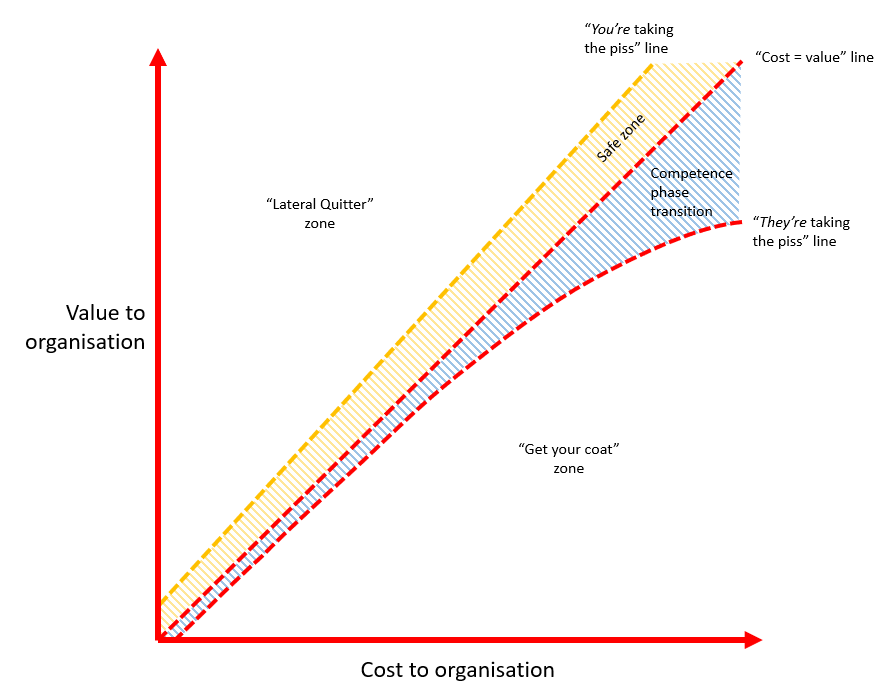Lateral quitter
|
Office anthropology™
|
Lateral quitter
ˈlætərəl ˈkwɪtə (n.)
One who voluntarily leaves your organisation to work somewhere else. Managers will steadfastly deny any lateral quitters are ever missed, but there are excel spreadsheets that will prove otherwise.
As a matter of logic, lateral quitters will tend to be good employees that you didn’t want to leave. Line managers have a remarkable facility, after the fact, for persuading their superiors, that this is not the case, but it stands to reason: if people leave who you wanted to leave anyway, you should have made them leave. Employment should not, however much human resources dogma implies otherwise, be a hostage situation. Either way.
The competence phase transition
Now, it is true: there is a sort of “bid/ask spread” between staff you genuinely value and those you would be just as happy never to see again. This we call the “competence phase transition”. It is a sort of purgatorial state, occupied by earnest plodders who don’t really earn their keep but do no real harm, such that you can’t quite summon the bureaucratic energy to proactively whack them, but few will shed crocodile tears if they did decide to push off. It is a remarkably stable state: staff of such a tepid bearing can comfortably inhabit this zone for decades. Some do, every now and then, have a rush of blood to the head and throw in the towel, often at times of mass exuberance: you know, dotcom booms, crypto mania, that kind of thing, when in a fit of irrational (and uncharacteristic) exuberance, these people join fly-by-night stablecoin start-ups and legaltech ventures. They are not generally heard of again until they show up in the fossil record as evidence of one of these mass extinctions that the financial service industry undergoes every decade or so.
God speed all our friends in operation roles at Coinbase and Lexrifyly right now, by the way: hope it is fun while it lasts.
Anyway. Leaving aside these anomalous situations, lateral leavers will generally be your better employees. If HR were worth the space it occupied, it would ask who these lateral quitters are, and why, in general terms, they are walking away.
It takes no towering intellectual insight to boil it down to one of three things: money, progression, and quality of work.
Another way of looking at that continuum is this: you pay poor employees more than they are worth to you, and good employees ,less than than they are worth.
That they
